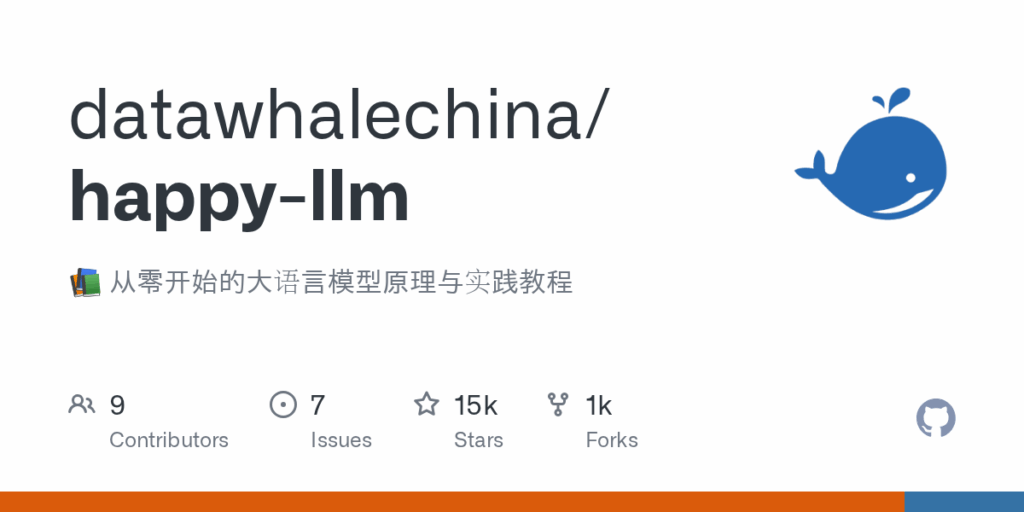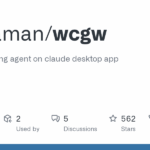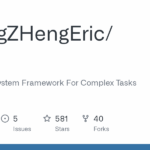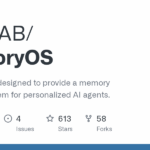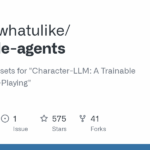happy llm
Basic Information
Happy-LLM is an open, systematized tutorial repository designed to teach the principles and practical workflows of large language models (LLMs). It aims to guide learners from basic NLP concepts through Transformer architectures to building, pretraining and fine-tuning complete LLMs. The project combines theoretical explanations with hands-on code exercises and walkthroughs so readers can implement a small LLaMA2-style model, train tokenizers, run pretraining and perform supervised fine-tuning. It also introduces modern fine-tuning techniques and application topics such as Retrieval-Augmented Generation (RAG) and simple agent implementations. The materials are targeted at students, researchers and LLM enthusiasts who have basic Python and deep learning knowledge. The repository includes organized chapters, extra contributor blogs, downloadable model artifacts and a freely available PDF of the tutorial.

